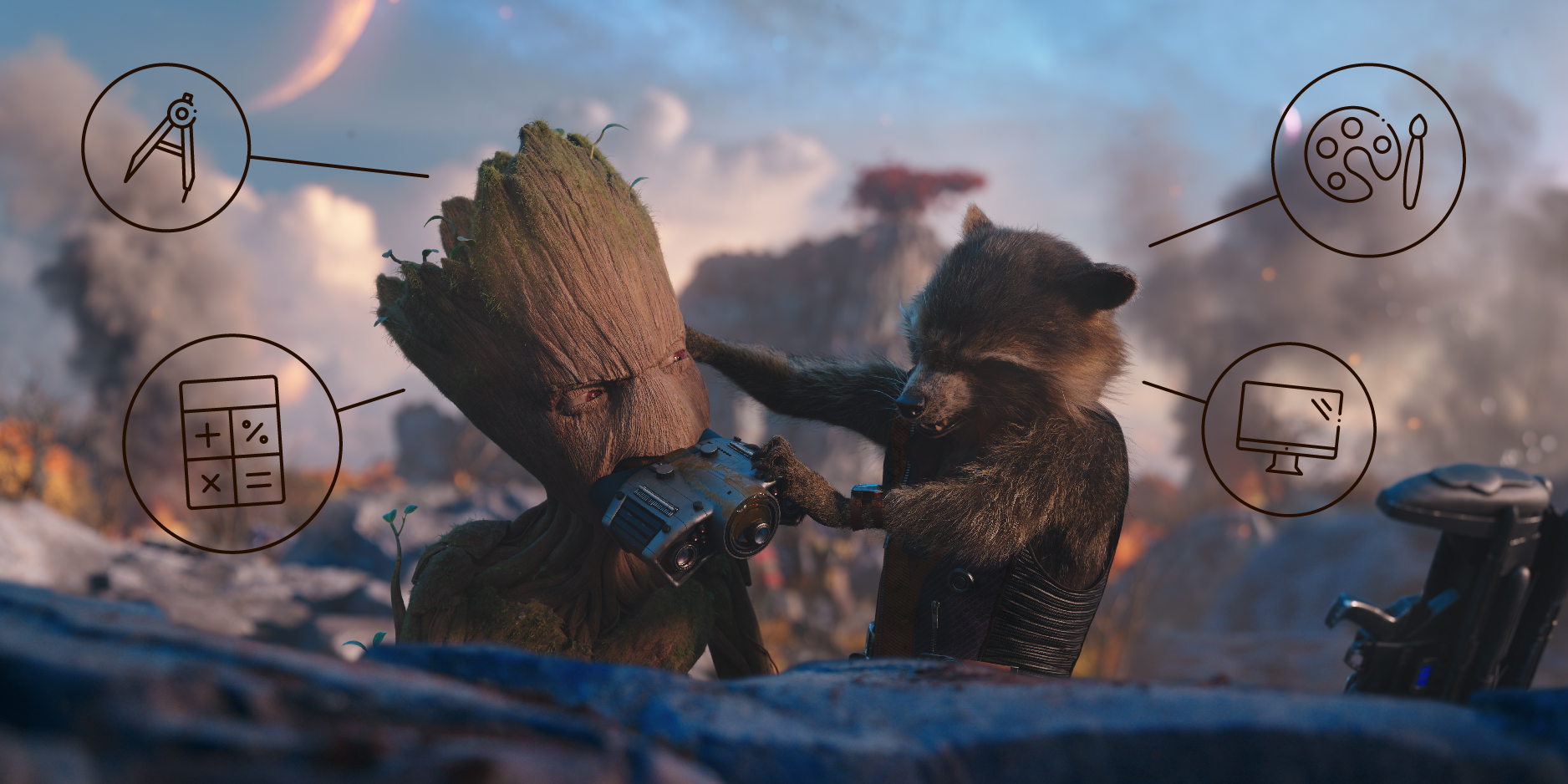Did you know that the last 10 visual effects (VFX) Oscars were won by companies that were founded in the UK? Or that your favourite Marvel superheroes were created here?
What do science and technology have to do with your favourite superhero films? Well, a lot more than you might think!
Framestore is a three-time Oscar-winning visual effects (VFX) studio that was founded right here, in the UK, in 1986, to work initially on computer graphics for music videos and commercials. However, as computing technology has improved so too has the scope of our work and we now produce digital images or computer-generated images (CGI) for almost any screen you can think of; whether that’s a TV, cinema, installation, theme park ride or VR headset. And it’s not just the work, we have evolved from a company of 5 people back in 1986 to now employing over 3000 people with offices all over the world, including the UK, Canada, the USA, India and Australia. So, if working overseas is something you see in your future then the VFX industry has a lot to offer!
Visual effects are a growing industry, both internationally and in the UK, with several hundred more jobs being created here over the next 5 years, making it an exciting and viable industry for a future career. Additionally, it has proved, in the past, to be both recession and pandemic-proof as demand for entertainment content during difficult times increases rather than decreases (just think about how much Netflix we all consumed during the pandemic!).
But how do we use science and technology to bring imagined worlds and characters to the screen? Well, we start with physics! A lot of our work relies on theories and ideas that you might be familiar with such as gravity, the laws of motion, colour science and optics. Light in our computer-generated worlds works the same way as it does in reality, objects move in response to the force of gravity – we need to understand these concepts to be able to replicate them effectively.
And when it comes to your favourite characters or creatures, well they start with accurate anatomy and biology! All our characters are built from the inside out; meaning that we start with their skeleton, then add their muscles and then finally their skin. It’s important that we understand how animals in the real world move and function in order that our imagined characters are believable and can move in a way that looks realistic to you as our audience!
So, does this mean that we just employ scientists at Framestore? Not at all! We also employ computer scientists, software developers and programmers to help manage the complex and vast amount of data and graphics we produce. Whether it’s using Unreal Engine to build the next generation of digital humans, developing our own rendering tools or taking on Europe’s largest LED volume for virtual production, Framestore is at the forefront of technical and creative innovation in our field.
In fact, we employ a diverse range of people in this industry; from fine artists and designers to animators and digital sculptors, to project managers and accountants and engineers and physicists, there really is no one route into this industry or a ‘typical’ path. That’s not to say that there aren’t VFX-specific qualifications out there because there absolutely are, some of which we have been actively involved in creating, but there is no obligation to have studied to be a visual effects artist to find a role for yourself in the industry.
But what does a typical day in a visual effects studio look like I hear you ask? Well, like a lot of industries, we have moved to a hybrid model post-pandemic so you will spend some of your time working from home and some in the office (or be entirely office based if that’s what you prefer!). We have an amazing office space with great social areas, including a 5th-floor balcony with impressive views over all the sights of London, dedicated training spaces and plenty of free tea, coffee, toast, fruit and even the odd sugary treat on a regular basis! Each day follows a similar theme of getting on with your assigned tasks but at least twice a day reviewing what you’re working on with a more experienced member of the team who will give you feedback and advice to improve. Every Framestore employee gets a dedicated buddy when they start with us so you will also have your buddy on hand to ask all those silly questions and to bounce ideas off. So, you will not be dropped in the deep end!

Photo credit: Marvel
This all sounds amazing, but how do you go from where you are now, at school, to creating the next Thor or Spiderman? It starts with keeping your options open! We know that you can often be encouraged to stick with either science OR with more creative subjects and that it doesn’t make sense to do both. But we disagree! In this industry, we use both halves of our brains to creatively problem-solve and apply real-world concepts. So, if you want to do art, physics and IT – go right ahead! Fancy biology, maths and design? Do it! When it comes to A levels versus going to college then it really depends on how sure you are that VFX is the right path. We recommend the NextGen Level 3 Extended Diploma (because we helped to create it!) but A levels in a variety of subjects, as previously mentioned, works just as well.
After school or college is when your options really start to open. At University you can choose to study almost anything you like because, as we said, lots of subjects can lead into this industry. There are lots of VFX and animation-specific courses out there and some of the best ones are ranked here for you. However, if University isn’t right or isn’t an option for you then we also have our Level 4 apprenticeships – Junior Animator, Production Coordinator or Junior VFX Artist.
And finally, I would like to offer up some other useful sources of information or guidance if a career in VFX sounds kind of cool:
• Virtual work experience
• Online mentoring
• Job descriptions
• Careers maps and skills development
So, what are you waiting for? Tony Stark has nothing on you!
Download PDF
If you wish to save, or print, this article please use this pdf version »
Learning resource
We have created learning notes to assist students and educators to further investigate the topics covered in this article. You can download the learning resource here »



